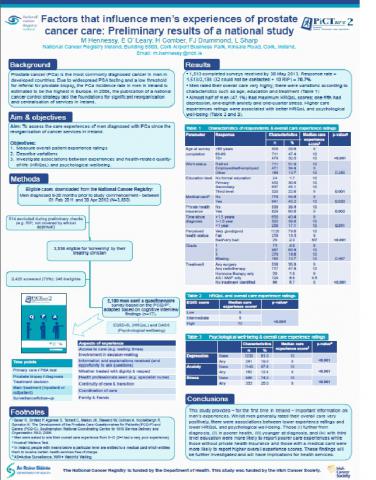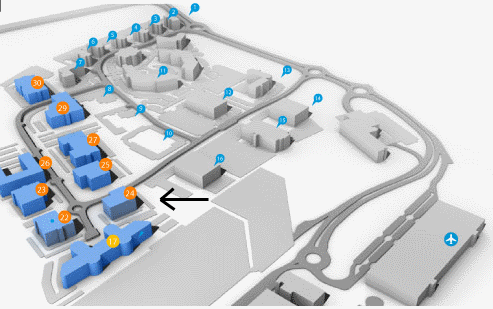Current Size: 100%
Factors that influence men’s experiences of prostate cancer care: Preliminary results of a national study
Factors that influence men’s experiences of prostate cancer care: Results of a national study
Background: Prostate cancer is the most commonly diagnosed cancer in men in developed countries. Due to widespread PSA testing and a low threshold for referral for prostatic biopsy, the prostate cancer incidence rate in men in Ireland is estimated to be the highest in Europe. In 2006, the publication of a national strategy for cancer control laid the foundations for significant reorganisation and centralisation of cancer services in Ireland. The PiCTure 2 study aims to assess the care experiences of men diagnosed with prostate cancer since this reorganisation. The objectives are to: (1) measure overall patient experience ratings; (2) describe variations in experiences; and (3) investigate associations between experiences and health related quality-of-life and psychological wellbeing.
Method: Men diagnosed with invasive prostate cancer (ICD10 C61) 5-20 months prior to study commencement were identified through the National Cancer Registry. The study questionnaire was based on the Prostate Care Questionnaire (Baker et al. 2007), modified for Ireland and pre-tested using cognitive interviewing. Health related quality-of-life and psychological wellbeing were assessed using the EQ5D-5L and DASS. The questionnaire was administered by post to 1,500 men during January-February 2013.
Results: More than 800 completed questionnaires have so far been received. Men's experiences will be compared by time since diagnosis, age at diagnosis, treatments received and socio-demographic factors. Factors which contribute to positive/negative experiences will be highlighted and the extent to which these are associated with health related quality-of-life and psychological wellbeing described.
Conclusion: This study provides – for the first time in Ireland - important information on men’s experiences of prostate cancer care since the reorganisation of cancer services began. The results will be of value to policy-makers, service providers, health professionals and patient support organisations.






